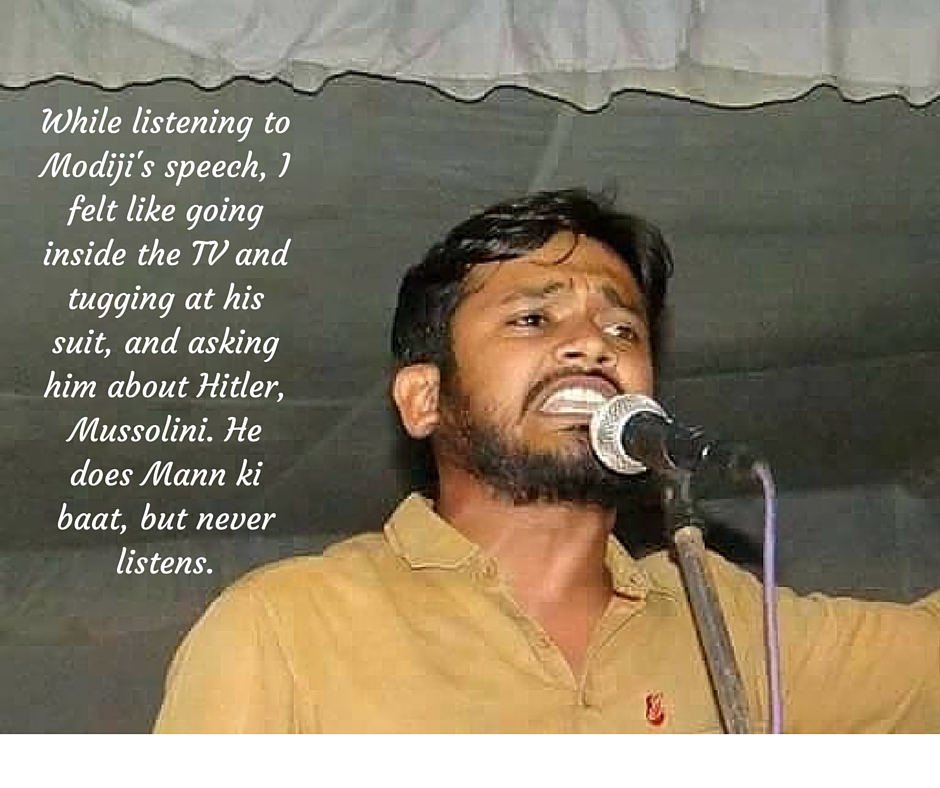New information technology has become a great leveler. Just as it allows the jihadis to have their violent message registered across national boundaries, it also enables an Anna Hazare to hobble down political establishment. The same technology was used by the RSS-inspired security establishment to make a ‘seditious’ villain out of JNU student union president, Kanhaiya Kumar; the same technology has now been deployed by Kanhaiya and his friends to mount a counter-offensive. On Thursday afternoon, Kanhaiya emerged from jail, and, on Thursday night, he emerged as a star, a new voice of young India, boldly unintimidated and brilliantly unapologetic, staggeringly rhetorical.
Suddenly, this otherwise un-prepossessing young man from Bihar has come to symbolize two struggles: one personal and immediate, and second, long-term and ideological. His arrest by an overzealous Delhi Police on a ‘sedition’ charge brought into sharp focus the question of freedom of speech. That fundamental freedom has now been sought to be trifled with, as per the political preferences of the ruling party of the day. The judiciary, thankfully, remains sufficiently independent to ensure that the Kanhaiya Kumars across the land are not robbed of their autonomy to think critical thoughts, even disturbing thoughts.
Then, Kanhaiya Kumar represents the long-term struggle over this country’s soul. On the one hand, there is the RSS-BJP combine, armed with its Hindutva ideology; on the other, are voices, ideas and groups which refuse to accept the Hindutva-laced prescriptions and proscriptions. Because the BJP is the ruling party, the Hindutva forces feel empowered to insist on defining how this country would conduct itself, what the citizens would be allowed to believe and say. The ruling combine wants to shut down all arguments, or allow only those arguments it approves of. This arrogant interpretation of the ruling elites of its minatory right is being contested. This is both natural and desirable. Natural because India has travelled so far on the road to democracy that it would not countenance any ruler or his policemen to round up any inconvenient voice; desirable because democratic principles, indeed insist on dissent and criticism as a healthy antidote to overweening power structure. Kanhaiya Kumar’s Thursday performance was a reaffirmation of that right to speak up to the authority.
(Tribune, Chandigarh)
